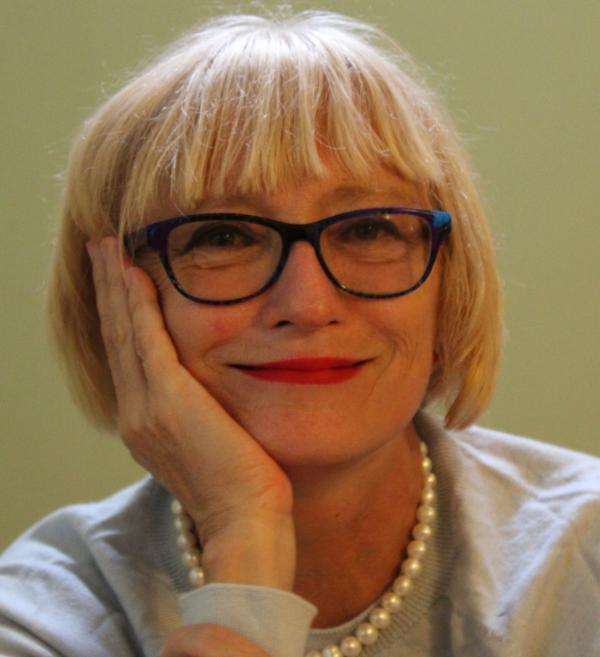Professor of Chemistry and Biochemistry Dr. Teresa Bandosz’s interest in science was first piqued in kindergarten. Her kindergarten teacher used to have educational poster presentations before the parents came to pick up the children after school. One day, the teacher created a poster about what products can be derived from coal. A young Teresa Bandosz was surprised to learn that the white nylon apron she had was also a product of coal conversion.

“At the time I had a little white apron made of nylon, and she said that the apron was also made from coal. It was very difficult for me to me understand how the dirty coal, which he was using to heat the house, could be made into my beautiful white apron.”
It was the first of many scientific questions she would ask in her life.
She attended The University of Mining and Metallurgy in Poland, where she earned her Master’s degree in chemical engineering in 1984. In 1989, Professor Bandosz earned a Ph.D. in Chemical Engineering at Cracow University of Technology. After receiving a visa to work in the United States in 1991, she came to City College as a research assistant professor, where her work mainly focused on the development of new separation media and catalysts with a focus on environmental remediation/removal of pollutants and energy-related applications.
“I just wanted to use my knowledge and expertise to make our lives better, to do something which is useful and can be applied.”
Professor Bandosz received a Fulbright Scholarship in 2016/2017. The Fulbright Scholars Program is a program run by the United States government to promote international educational and cultural exchange. Fulbright scholar awardees typically teach or conduct research in an institution outside of their country for the duration of their scholarship. For the duration of Professor Bandosz’s scholarship, she worked on the development of carbon-based materials for CO2 adsorption from the air alongside Professor Rodriguez-Castellon at the University of Malaga in Spain. They worked to understand the specific forces in carbon that could increase the affinity of its surface to adsorb CO2 via specific chemical modifications. As excess CO2 in the atmosphere is a major cause of ongoing climate change, the ability to remove it would be a great boon to environmental preservation efforts. To extract the CO2 from the air, she and her colleagues modified carbons with a nitrogen group to increase its surface affinity.

“We were trying to understand the specific forces in carbon materials, which could increase the affinity of the surface to absorb CO2 by chemical modification. We introduced sulfur and nitrogen species to the carbon surface, and we were trying to understand how CO2 interacts with them.”
Dr. Bandosz and her colleagues had been developing specific absorbents for small molecules gases for years beforehand, so the CO2 removal itself was an extension of older research. The Fulbright scholarship created lasting benefits for Dr. Bandosz – even after the completion of the CO2 removal research, she published papers with her Spanish colleagues as coauthors, some not directly related to the Fulbright-sponsored research.
Professor Bandosz’s most current research focuses on both electrocatalysts for energy-related processes and the removal of harmful chemicals from the environment. She has been on sabbatical for the past year and has spent it pursuing several lines of research. She spent time at the University of Granada in Spain researching the development of new materials for the detoxification of chemical warfare agents with an emphasis on metal-organic frameworks-carbons composites. She also spent four months at the Technical University of Dresden, working on understanding the mechanisms underlying formaldehyde interactions with carbon surfaces.
At the moment, Professor Bandosz is pursuing research in Japan on a fellowship from the Japan Society for the Promotion of Science. In the future, she wants to use the experience she has gained during her fellowships to advance research related to her scientific expertise.
Roxanne Lee is an editorial assistant on the RICC who joined the newsletter in December 2021. She loves writing about all sorts of scientific fields but favors environmental science, biology, and ecology in particular.